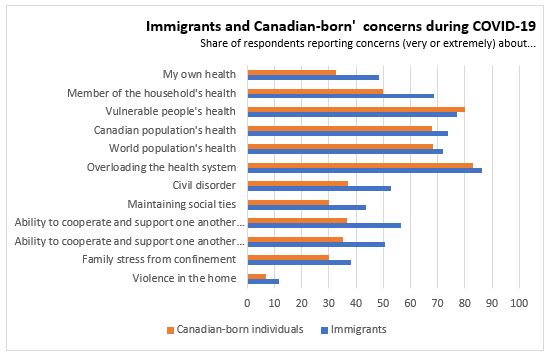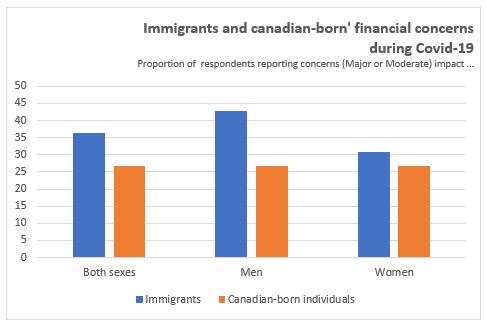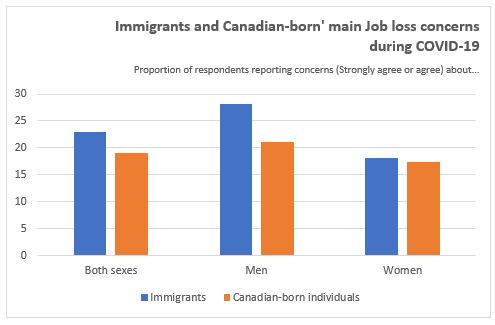The Economics and Statistics Division maintains archives of previous publications for accountability purposes, but makes no updates to keep these documents current with the latest data revisions from Statistics Canada. As a result, information in older documents may not be accurate. Please exercise caution when referring to older documents. For the latest information and historical data, please contact the individual listed to the right.
<--- Return to Archive
For additional information relating to this article, please contact:
May 01, 2020STUDY: THE SOCIAL AND ECONOMIC CONCERNS OF IMMIGRANTS DURING THE COVID-19 PANDEMIC During the COVID-19 pandemic, Statistics Canada developed a new web panel survey, the Canadian Perspectives Survey Series (CPSS) based on a survey of 4,600 people in 10 provinces. The CPSS is a subsample of the Labour Force Survey (LFS), immigration status was obtained from the LFS. CPSS respondents included 357 immigrant men and 366 immigrant women. The survey was over the March 29 to April 3 period. In 2016 census, immigrants represented 21.9 per cent of the overall Canadian population. Because people born outside Canada have different life experiences than those who are born in Canada, their social and economic concerns may be different from those of Canadian-born individuals. This release looks at the social and economic experiences of immigrants during the COVID-19 pandemic.
Immigrants were more likely than Canadian-born individuals to report that they were “very” or “extremely” concerned about their own health (49 per cent vs. 33 per cent) and about the health of other household members (69 per cent vs 50 per cent). Immigrants were as likely as Canadian-born individuals to be worried about other health concerns, such as overloading the health system. Immigrants were more likely than Canadian-born individuals that they concerned about the possibility of civil disorder (53 per cent vs. 37 per cent). They were also more likely than Canadian-born individuals to have higher levels of concern about the maintenance of social ties (44 per cent vs 30 per cent) and about the ability to support one another during or after the pandemic. Immigrants were almost twice as likely as Canadian-born individuals to be concerned about the possibility of violence in the home (12 per cent vs 7 per cent). Differences between immigrants and Canadian-born individuals were similar for both men and women.

Immigrants were significantly more likely than Canadian-born individuals to report that the crisis would have a “major” or “moderate” impact on their finances. Immigrant men were more likely than Canadian-born men to report that the crisis would have an impact on their ability to meet financial obligations (43 per cent vs 27 per cent).

Recent research has shown that the labour market outcomes of immigrants have improved in recent years (Yssaad and Fields 2018; Statistics Canada 2019). Immigrants were not more likely than Canadian-born individuals to report that the crisis would have an impact on their main job loss. Immigrant men were more likely than Canadian-born men to report that the crisis would have an impact on their main job loss (28.2 per cent vs 21 per cent). Differences between immigrants and Canadian-born were not statistically significant in CPSS.

Source: Statistics Canada. Study: The social and economic concerns of immigrants during the COVID-19 pandemic
<--- Return to Archive